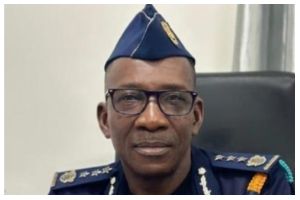Daasebre Professor Oti Boateng, Omanhene of New Juaben, has appealed to all Ghanaians to spread the message of peace as the December polls draw near.
He said Ghana had been known to be an oasis of peace in Africa and therefore the need to preserve the peace to tackle the development gaps in education, health, agriculture and other sectors of the national life.
“As a nation, we can only move our development agenda forward on a platform of peace” he added.
Daasebre Oti Boateng was speaking at the fourth “Akwasidae” festival in Koforidua last Sunday.
He said his visit to war-torn Afghanistan about two months ago on a United Nations Mission, revealed how devastating war could be and hence the need to promote peace.
According to him, it was important to talk about peace since many countries had been torn apart by disputes arising out of election disputes.
“If we look around, we can see what the struggle for political power has done to countries such as Liberia, Sierra Leone, DR Congo, Libya and Egypt in recent past”.
The New Juaben Omanhene indicated that the human “tongue” had been described as very deadly, unruly, evil and extremely poisonous, which could cause destruction everywhere.
For that reason, Daasebre Oti Boateng cautioned all to watch what they say to avoid the calamities which the tongue could cause as recorded in the Holy Book.
He reminded all that it was a radio pronouncement in Rwanda a few years ago that led to the unfortunate genocide in that country, resulting in the death of thousands of innocent people.
According to him, the high political tension the country was witnessing presently required great circumspection in political campaigns to avoid the breach of peace.
A group of people from the University of North Carolina, Asheville and USA, was present to grace the occasion.
Dr Boakye Boateng, a lecturer at that University and a leader of the team, explained that their four weeks stay in Ghana was to tour local universities to appreciate the education system and how science was being studied in Ghana as compared to their school.
He said the visiting students would interact with students and lecturers in the University of Ghana and Cape Coast on the application of science in the country.**
Regional News of Monday, 28 May 2012
Source: GNA
New Juaben Omanhene calls for peace
Entertainment











